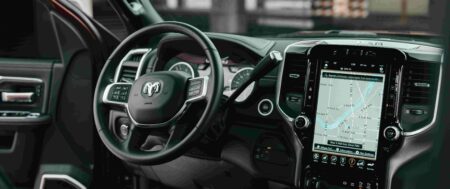Are Certified Pre-Owned Cars Worth it?
Have you ever thought that are certified pre-owned cars worth it? Yes, certified preowned cars offer a middle ground between new and used vehicles, providing buyers with the assurance of quality and reliability at a lower price point than brand-new models. These certified pre-owned cars feature a thorough inspection of spare parts, model sales, refurbishment, and certification processes by manufacturers or dealerships, backed by extended warranties and additional benefits.
While certified preowned cars introduced by Auto Finance Denver may come with a slightly higher price tag compared to non-certified used vehicles, the peace of mind, warranty coverage, and overall quality they offer make them a worthwhile investment for many buyers seeking reliability without the hefty cost of a new vehicle.
Are Certified Pre-Owned Cars Worth It?
When it comes to purchasing a preowned vehicle with auto loans, especially any model of car from a dealership lot, preowned cars often present several advantages that make them an appealing choice for buyers. Here are some key reasons why pre-owned vehicles can be the best option:
Affordability
One of the primary reasons why preowned cars are preferred by many rental companies and individuals is their affordability and long-life warranty. Used cars typically come with lower price tags and a CPO warranty compared to their brand-new counterparts, allowing buyers to save money upfront. This affordability makes preowned CPO sedans accessible to a broader range of consumers, including those on a tight budget or looking to minimize their overall expenses.
Reduced Depreciation
New cars and CPO vehicles experience rapid depreciation in their first few years of ownership, losing a significant portion of their value as soon as they are driven off the lot. Certified preowned cars, on the other hand, have already undergone this initial depreciation with certified pre-owned programs, resulting in slower depreciation rates over time. As a result, buyers of preowned vehicles can avoid the steep depreciation curve associated with new vehicles, potentially saving them money and roadside assistance in the long run.
Variety and Options
The market for certified pre-owned vehicles offers a wide variety of makes, models, many CPO programs, and trim levels to choose from, providing buyers with ample options to suit their preferences and needs. Whether you’re looking for a specific make or ordinary used or new pre owned car and model or are open to discovering different options, the preowned car market offers a diverse selection of vehicles to choose from, catering to various budgets and lifestyles with extended warranties as compared to non-CPO cars.
Lower Insurance Costs
For car financing Insurance premiums for preowned vehicles and cars sold are often lower compared to new vehicles, as insurers base premiums on factors such as the vehicle’s age, powertrain warranty mileage, and overall value. Since preowned vehicles with the CPO program have already depreciated, insurance costs are typically more affordable, allowing buyers to save money on insurance premiums over the vehicle’s lifespan due to free maintenance and the CPO warranty.
Certified Preowned Programs
Many manufacturers and dealerships offer certified preowned programs, which provide additional benefits and assurances to buyers. The CPO programs offer buyers peace of mind and convenience because their preowned vehicle meets specific quality standards, has bumper-to-bumper coverage, inspection points, auto loans, and is covered by vehicle warranty protection.
Overall, pre-owned vehicles offer several advantages that make them an attractive option for buyers of different models. From affordability, warranty covers, and reduced depreciation to a wide variety of options and lower insurance costs, preowned cars provide an appealing alternative to buying new. Additionally, certified preowned programs add an extra layer of assurance and benefits, making preowned vehicles a compelling choice for many consumers looking for reliable transportation without breaking the bank.
What to Look for in a Certified Pre-Owned Car
Buying a certified pre-owned (CPO) car can offer the best of both worlds: the affordability of a used car and the assurance of quality similar to that of a new vehicle. However, navigating the world of certified preowned vehicles requires careful consideration and research. Here’s a comprehensive buying guide to help you make an informed decision:
Research and Budgeting
Before diving into the CPO market, it’s essential to conduct thorough research. so determine your needs, preferences, and budget constraints. Research different makes and models to identify which ones align with your requirements. Additionally, set a budget range to ensure you’re not overspending.
Certified Preowned Programs
In addition, you should familiarize yourself with the certified preowned programs offered by various manufacturers. Each program has its own set of standards and benefits, so it’s crucial to understand the specifics of each program. Research factors such as warranty coverage, the inspection process, and additional perks offered by the manufacturer’s CPO program even for the used vehicle.
Vehicle History and Inspection
You should obtain a comprehensive vehicle history report to gain insight into the car’s past ownership, maintenance records, previous accident history, and title status.
Additionally, thoroughly inspect the vehicle, both visually and mechanically. Look for signs of wear and tear, check the exterior and interior condition, brake pads, mileage limits, and tire tread depth, and assess the functionality of essential components such as the engine, brakes, and transmission. Consider hiring a professional mechanic to conduct a detailed inspection for added peace of mind for a negotiated price
Warranty Coverage
One of the primary benefits of buying CPO models is the warranty coverage provided by the manufacturer. Review the details of the warranty, including its duration, coverage limits, and any exclusions. Understand what repairs and services are covered under the warranty to avoid any surprises down the road. Additionally, inquire about any extended warranty options available for further protection.
Certified Preowned Vehicle Pricing
While CPO trucks, which are originally purchased, generally come at a higher price than non-certified used cars, they often offer better value due to their quality assurance and warranty coverage. However, it’s essential to compare prices across different dealerships and CPO programs to ensure you’re getting a fair deal. Consider factors such as the vehicle’s age, mileage, condition, and included benefits when evaluating the price.
Test Drive and Final Negotiation
Moreover, schedule a test drive to experience how the car handles on the road and assess its overall performance. Pay attention to factors such as comfort, noise levels, and driving dynamics during the test drive. Afterward, negotiate the final price with the dealership based on your research, inspection findings, and test drive experience. Be prepared to walk away if the dealership is unwilling to negotiate a fair price.
Post-Purchase Considerations
Once you’ve finalized the purchase, ensure all necessary paperwork is completed correctly, including the transfer of ownership and warranty documentation. Familiarize yourself with the terms of the warranty and any maintenance requirements to maintain its validity. Additionally, consider investing in an extended warranty or maintenance plan for added protection beyond the manufacturer’s coverage.
Call Now For Pre-Qualification Info
Check if the Car is Certified Pre-Owned
If the car is pre-owned and certified, there a certain criteria for checking. like you have to go through the following steps.
1. Research Certified Preowned Programs:
Start by researching the certified preowned programs offered by various manufacturers. Visit the official websites of car manufacturers or contact local dealerships to inquire about their CPO programs. Each manufacturer may have different standards and requirements for certifying preowned vehicles.
2. Request documentation:
Ask the seller or dealership for documentation proving that the car is certified preowned. This documentation typically includes a detailed inspection report, warranty information, and any additional benefits offered through the CPO program. Review these documents carefully to ensure they meet your expectations and provide the necessary assurances of quality and reliability.
3. Check for CPO badges or stickers:
Certified preowned vehicles often come with badges or stickers indicating their certification status. Look for these badges on the exterior of the car, typically near the trunk or on the rear windshield. Additionally, check the interior for any certification stickers or plaques that may be displayed prominently.
4. Verify warranty coverage:
Confirm the warranty coverage associated with the certified pre-owned car. This information should be included in the documentation provided by one owner, seller, or dealership. Ensure that the warranty meets your needs and offers sufficient coverage for potential repairs or maintenance.
5. Consult with a Trusted Mechanic:
If possible, you should have the certified preowned car inspected by a trusted mechanic or automotive technician at Auto Finance Denver with a limited warranty. They can assess the vehicle’s near-mint condition and verify that it meets the manufacturer’s certification standards. This additional step can provide further reassurance of the car’s quality and reliability.
Call Now For Pre-Qualification Info
Best Time to Get a Certified Pre-Owned Car
The best time to purchase a certified preowned new car depends on various factors and other perks, including market trends, dealership incentives, and personal preferences, as compared to buying used cars with expensive repairs. However, there are a few general times that tend to offer favorable conditions for buyers and avoid the risk involved:
End of the Month or Quarter
Dealerships often have sales quotas to meet, and a limited warranty, and they may be more motivated to offer discounts or incentives towards the end of the month or quarter to reach their targets. This can be a good time to negotiate a better deal on a certified pre-owned vehicle.
Year-End Clearance Sales
Toward the end of the calendar year, dealerships may offer year-end clearance sales and original warranties to make room for newer inventory. This can result in discounted prices and special promotions on certified preowned vehicles.
Holiday Weekends
Holiday weekends, such as Memorial Day, the Fourth of July, Labor Day, and Black Friday, are popular times for car sales events. Dealerships often run promotions and sales during these periods, including discounts, special financing offers, and incentives on certified pre-owned cars.
New Model Releases
When new models are released, dealerships may offer incentives or discounts on previous-year models, including certified preowned versions. This can be a good opportunity to find a certified preowned car at a lower price as dealerships make room for newer inventory.
Seasonal Trends
Consider seasonal trends in the automotive market. For example, demand for convertibles may be higher in the spring and summer months, leading to increased availability and potentially lower prices on certified preowned models during the off-season.

Call Now For Pre-Qualification Info
Pros of Certified Pre-Owned Cars
Like any other vehicle, either an old or a new car, there are pros and cons to buying a used or pre-owned car as compared to a car, which comes in the way of reliable buying.
Reliability
Certified preowned cars undergo rigorous inspections and refurbishment, ensuring their quality and reliability.
Warranty Coverage
These cars come with extended warranty coverage, providing financial protection against unforeseen issues.
Lower Depreciation
Compared to new cars, certified preowned cars experience slower depreciation, with the CPO designation offering better long-term value.
Additional Benefits
Buyers often receive perks like roadside assistance and complimentary maintenance services, enhancing the ownership experience.
Cons of Certified Pre-Owned Cars
Certified preowned cars offer peace of mind, value, significant savings, powertrain coverage, third-party certifications, and reassurance, making them an attractive choice for buyers seeking quality vehicles with added benefits. There are some disadvantages to buying pre-owned certified cars. Let’s have a look at them.
Higher Initial Cost
Certified preowned cars typically come with a higher price tag compared to non-certified used vehicles, as they undergo thorough inspections and refurbishment.
Limited Selection
The availability of certified preowned cars may be limited compared to the broader selection of non-certified used cars, restricting buyers’ options.
Potentially Higher Insurance Costs
Some insurance companies may charge higher premiums for certified preowned cars due to their perceived value and warranty coverage.
Age and Mileage Restrictions
Certified preowned programs may have restrictions on the age and mileage of eligible vehicles, limiting choices for buyers.
Call Now For Pre-Qualification Info
FAQs
How much can you negotiate off a certified pre-owned car?
Negotiation on a preowned car can vary based on factors such as market demand, vehicle condition, and dealership policies. On average, buyers may negotiate anywhere from a few hundred to a couple thousand dollars off the asking price of a preowned car.
Is purchasing a certified pre-owned car worth the extra cost?
In many cases, yes. Certified preowned cars undergo rigorous inspections, come with warranty coverage, vehicle age, and CPO warranties, and often have additional benefits, providing buyers with assurance of quality and reliability, which can be worth the extra cost.
Are preowned cars worth buying compared to new cars?
Yes, preowned cars are often worth buying as they offer significant cost savings due to depreciation, while still providing reliable transportation and potentially lowering insurance costs.
Conclusion
Yes, certified pre-owned (CPO) cars are worth it because they offer compelling value and peace of mind to buyers. With thorough inspections, extended warranties, and additional benefits of CPO programs assure quality and reliability. While CPO cars may come with a slightly higher price tag compared to standard used vehicles, the benefits, including reduced depreciation, a lower risk of mechanical issues, and the satisfaction of purchasing a well-maintained vehicle, often outweigh the upfront cost. Overall, investing in a certified pre-owned car represents a prudent choice for buyers seeking a balance between affordability and quality in their vehicle purchase.










